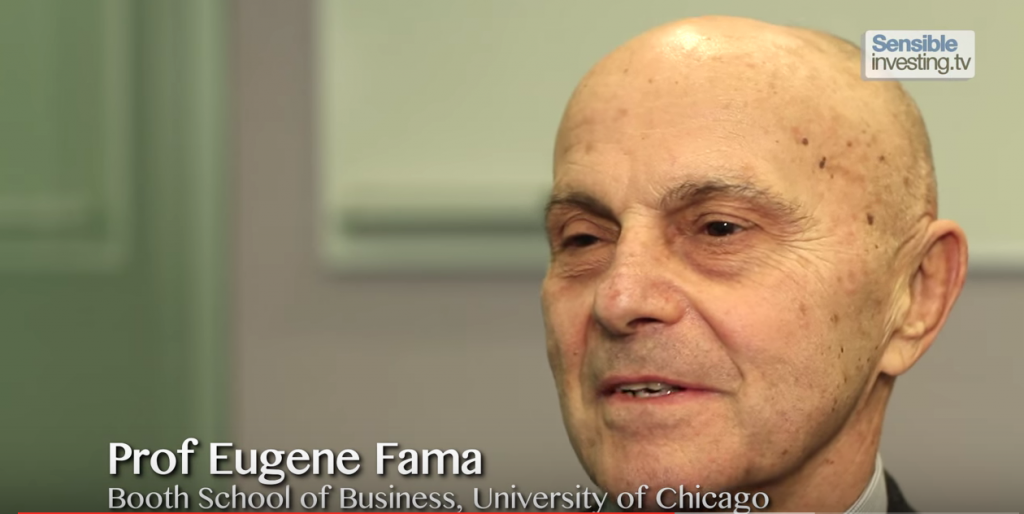The latest FWB TV video has been posted at FWBSecurities.com and will be archived at Findependence.TV. This 10-minute video is the third of ten installments we’ve been running every other week at the Hub. The title, of course, derives from Charles Ellis’s classic book on indexing, Winning the Loser’s Game. In addition to a clip from Eugene Fama, pictured above, there are interviews with Vanguard founder John Bogle, the IMA’s John Godfrey and a disillusioned former fund manager, Alan Miller. All in all, it’s a pretty compelling indictment of the high costs of active security selection and the benefits of low-cost “index” investing, whether implemented with index mutual funds or exchange-traded funds (ETFs.) For a video primer on ETFs, see this Hub post from last week. Below is Financial Wealth Builder president Paul Philip’s take on this latest instalment:
By Paul Philip
 Speak to index/passive investors and if you ask them to explain how they generate the returns the answer is simple and arithmetic: You start with the return of the market, you subtract the costs (usually lower than active investing) and you end up with your net return.
Speak to index/passive investors and if you ask them to explain how they generate the returns the answer is simple and arithmetic: You start with the return of the market, you subtract the costs (usually lower than active investing) and you end up with your net return.
Investors should appreciate this approach for two reasons, the first is that it’s low cost, the second is that it’s evidence-based; it can be proven; there is a formula.
Ask this same question to an active manager and the answer is likely going to be, “I can do better.”
It would have to be their answer because they are getting paid to try and beat the market. It would be absurd to pay anyone to underperform, well at least intentionally. It would be even more absurd for someone to say they are trying to underperform in their job.
Underperformance is not just a symptom of trying to outguess the market or trying to predict the future but is also due to costs eating away at returns. Active management not only means high trading costs, but also means large marketing budgets — as these investing leviathans spend money trying to convince advisors that their way is better than their competitors. It means spending money developing a brand so that when the advisors recommend these funds to their clients, the clients will feel a comfort level investing in the brand.
Brand and marketing don’t yield a market-beating return. Simple index and more importantly strategic index investing will more often than not produce the returns that investors seek and will outperform active management.
Paul Philip is president of Financial Wealth Builders Securities, a team of independent wealth advisors providing holistic financial planning, investments and strategies to well informed Canadians. Visit www.fwbsecurities.com for more investor education and resources.



